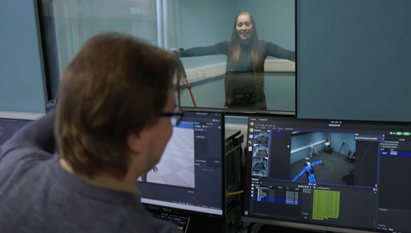The feature highlights the group’s pioneering work in immersive technologies and their potential to transform how we interact, learn, and experience the world.
The New Scientist piece, titled “Why Virtual Reality Is Changing Modern Society,” examines the technological, social, and cultural impact of VR. From gaming and education to healthcare and social connection, VR is becoming part of how we live, work, and learn. In that broad narrative, the EECS team’s research plays a particularly compelling role. In the video, researchers are featured in live demos, interviews, or application showcases. Their work demonstrates:
- How immersive environments can aid understanding of spatial cognition, perception, or neural processing
- Applications of VR in training, rehabilitation, or education
- Insights into how people behave, perceive, and adapt when inside virtual worlds
The video gives a window into both the technical and human side of VR. We’re proud to see our team’s work showcased in New Scientist, helping to elevate the conversation around virtual reality and its role in society.
You can watch the video here and follow our research on immersive tech in the EECS at QMUL.
